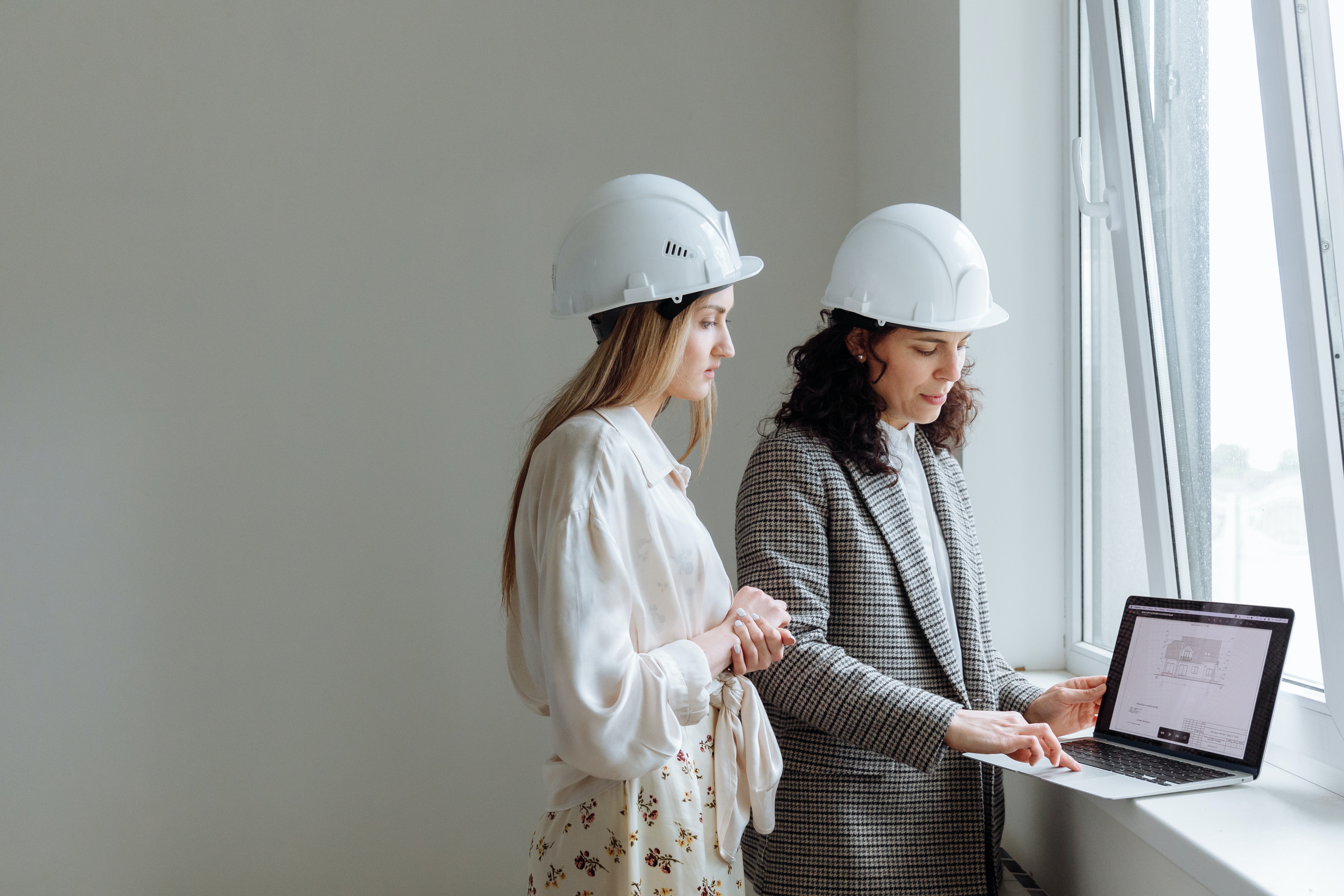A pre-sale condo purchase can be an excellent option if you want to buy property. Pre-sale purchases allow buyers to purchase a condo unit before it is built, typically at a lower price than what the unit would sell for once construction is complete.
The Real Estate Development Marketing Act (REDMA) is the primary legislation governing the province’s pre-sale contracts. REDMA requires developers to file a disclosure statement with the Superintendent of Real Estate before marketing pre-sale units. The disclosure statement must contain specific information about the development, including the number of units, the estimated completion date, the purchase price, and the amount of deposit required.
The purpose of the disclosure statement is to provide buyers with all the information they need to make an informed decision about purchasing a pre-sale unit. After receiving the disclosure statement, buyers have a seven-day cooling-off period to cancel the contract without penalty. After the cooling-off period, the buyer is legally bound to the contract. Any subsequent assignment of the contract must also comply with REDMA regulations.
As with any other investment, there are risks involved in pre-sale purchases that buyers must be aware of. In this article, we will discuss:
- the benefits of buying pre-sale
- the risks and pitfalls to avoid
- understanding the pre-sale contract
- working with a realtor and a lawyer in pre-sale purchases
- choosing the right pre-sale development
- navigating the assignment of the contract process
- protecting your investment in pre-sale purchases, and
- whether pre-sale is right for you as a first-time buyer
Benefits of Buying Pre-Sale
One of the main benefits of buying pre-sale is the potential for a lower purchase price. Developers often offer pre-sale units at a lower price than what the units will sell for once construction is complete. When purchasing a pre-sale condo, the buyer typically only needs to put down a deposit, which is usually around 10% of the purchase price. The buyer will then make payments throughout the construction process, which can be spread out over several years. This structure allows the buyer to secure a property with a much lower upfront cost than if they were purchasing an existing property.
The potential for appreciation in the unit’s value, should the real estate market be strong, would mean that the unit’s value could increase substantially between the time of purchase and the completion of construction.
By buying pre-sale, investors can purchase property at a lower price and sell it at a higher price before the property is completed, which could result in a significant profit margin. Pre-sale assignments (discussed below) also allow investors to avoid the costs associated with property management, such as maintenance and repairs.
Additionally, you can choose your unit and customize it to your liking, such as selecting finishes or choosing a specific floor plan. The customization can include choosing finishes, fixtures, and even layout changes. This level of customization is not typically available when purchasing an existing property and can be a major draw for many buyers.
The guarantees and warranties from the developer available for new units are not the least among these benefits and can include a warranty on the building’s structure, appliances, and finishes. Among so many uncertainties, these warranties and guarantees provide buyers with peace of mind, knowing that the developer will fix deficiencies and respond to problems.
Risks and Pitfalls to Avoid

One of the most significant risks of buying a pre-sale condo is the lack of information available to buyers. Since the property has not yet been built, buyers may not have a clear idea of what the finished product will look like. Developers may provide floor plans and renderings, which are often subject to change. Buyers may also not have a clear idea of the surrounding area, including amenities and transportation options, which can impact the property’s value.
Not far behind in the risk scale is the potential for the developer to cancel the project. If the project is cancelled, buyers may lose their deposit and be left without a unit. Additionally, if the real estate market declines, the unit’s value could decrease between the time of purchase and completion of construction, which could lead to financial losses for the buyer. The real estate market is unpredictable, and there is no guarantee that the property will increase in value.
Add to all that delays in construction and changes to building plans are not uncommon for pre-sale condos. Delays could mean the buyer has to wait longer to move into the unit, which could be inconvenient if they are renting or need to move for other reasons. Additionally, if there are significant delays, the buyer may have to pay additional costs for interim housing or storage of their belongings.
While developers may provide a timeline for completion, many factors can impact the construction process. This can include issues with permits, labour shortages, and weather conditions. Changes to building plans can also affect the final product, which may not meet buyers’ expectations.
Another risk of buying a pre-sale condo is financing. Since the property has not yet been built, traditional mortgage financing may not be available. Buyers may need to secure financing through the developer or a private lender, which can come with higher interest rates and fees. This can also make it harder to secure financing, as lenders may be more hesitant to lend money for a property that does not yet exist.
Legal issues can also arise when purchasing a pre-sale condo. Buyers should ensure that the developer has a good and reputable track record. In some cases, developers have gone bankrupt before completing a project, leaving buyers with unfinished properties and lost deposits. Ensuring that a lawyer reviews all contracts and agreements to protect buyers is also essential.
Regulatory changes and market risks can also impact the value and overall experience of buying a pre-sale condo. Changes to zoning laws or building codes can impact the final product, while changes in the housing market can impact the property’s value; thus making it harder to sell the property in the future or lowering the return on investment.
Understanding the Pre-Sale Contract
The purchase agreement is a legally binding contract that outlines the terms and conditions of the purchase. Reviewing the contract carefully and working with a lawyer to protect your interests before purchasing is essential. Ensure you understand the contract, as it outlines the purchase terms, including price, deposit amount, completion date, and the buyer’s rights and responsibilities. Buyers should pay particular attention to the cancellation clause, which outlines the circumstances under which the developer can cancel the project and what happens to the buyer’s deposit.
What is the Developer’s Disclosure Statement
A Developer’s Disclosure Statement (DDS) is a legal document that provides essential information about a new development, including the units, the building, and the surrounding area. It is designed to give potential buyers a clear understanding of what they’re getting into before they commit to purchasing. In British Columbia, all developers are required by law to provide a disclosure statement to potential buyers, and failing to do so can result in severe consequences.
A DDS should give potential buyers an accurate picture of the new development. It should include information about the developer, the construction, and the surrounding area.
Specifically, a DDS should include the following:
- The developer’s name, address, and contact information.
- Details on the purchaser’s rights to rescission
- A description of the development, including the number of units, the size of the units, and the amenities.
- A description of the construction, including the materials used, the planned completion date, and any warranties or guarantees.
- A description of the surrounding area, including any planned developments, zoning changes, or potential issues (such as noise or traffic).
- A statement of the purchase price and any additional fees or charges.
- A description of the deposit structure and the cancellation policy.
- Any other relevant information reasonably expected to affect a buyer’s decision to purchase a unit.
Before signing a purchase agreement, you should carefully review the DDS and ensure you understand all the terms and conditions. You should also consult with a lawyer to understand the legal implications of the DDS and the purchase agreement.

Working with a Realtor in Pre-Sale Purchases
Working with a realtor can be beneficial when purchasing a pre-sale unit. A realtor can help buyers navigate the pre-sale process and understand the contract. Additionally, a realtor can advise on choosing the most suitable pre-sale development, negotiating the purchase price, and understanding the assignment of the contract process. The agent should be familiar with REDMA regulations and have a track record of successful pre-sale assignments, just in case. The seller usually pays their commission, so you may not have to worry about that; however, always ask the agent about their terms.
How Can a Lawyer Help with the Purchase of a Pre-Sale Condo?
Did you know that lawyers can help you with the purchase or sale of real estate without the need of a Realtor? We can, and we do, help people save on Realtor fees.
For the purchase of pre-sale condominiums, lawyers can review and negotiate the purchase agreement to ensure that all the terms and conditions are fair and reasonable. Developers and builders are required to provide deposit protection for pre-sale condos. This means that any deposits paid by the purchaser must be held in trust until completion of the unit. If the developer or builder defaults on the project, the deposits are protected and can be refunded to the purchaser.
A lawyer can also help you identify any potential issues or risks associated with the property. For example, we can review the following:
- marketing materials or advertisements to ensure that they are accurate and not misleading
- building plans and specifications to ensure that they meet local building codes and regulations
- any zoning or land use restrictions that may affect the property
- compliance with provincial regulations
- identify any potential issues or risks associated with the property and offer solutions to mitigate them
- negotiate changes to the completion date or building plans and specifications.
When navigating the legalities and complexities of buying a pre-sale condo in British Columbia, a lawyer can be a valuable asset to you. A lawyer can help to identify and address issues before they become significant problems. With our expertise in real estate law and knowledge of the local market, a lawyer can help you make informed decisions that protect your interests and ensure a successful purchase.
Choosing the Right Pre-Sale Development
Choosing the right pre-sale development is essential to protect your investment. When selecting a pre-sale development, buyers should consider the developer’s track record, the location of the development, the amenities offered, and the quality of the construction. Reviewing the community plan for the area is also advisable so that you are clear on what to expect for the future. It is crucial to take your time and research the developer to ensure they have a good reputation and a history of completing projects on time and within budget.
Buyers should also ensure that they understand the area’s regulatory environment and housing market, including zoning laws and building codes, market trends and forecasts. Understanding these factors can help buyers make informed decisions and minimize the impact of any changes or risks.
Navigating the Assignment of Contract Process
Assignment refers to transferring rights and obligations under a contract from one party to another. In the case of pre-sale assignments, the buyer of the pre-sale unit (the assignor) transfers their rights to purchase the property to another buyer (the assignee). The assignor remains liable for any breaches of the contract, but the assignee takes over the obligation to pay the purchase price and complete the transaction.
This process allows buyers to purchase property before it is completed and sell the contract to another buyer before the property is ready for occupancy. This process can be beneficial if the buyer can no longer finalize the purchase, and it can also be a lucrative option for investors. Still, it comes with specific rules and regulations in British Columbia.
Buyers should work with a lawyer and a realtor to protect their interests.
In an assignment, one of the risks is that the buyer of the pre-sale unit (the assignee) may default on the contract, leaving the original buyer (the assignor) liable for the purchase price. Additionally, pre-sale assignments are subject to a significant amount of regulation, which can make the process more complicated and costly.
Protecting Your Investment in Pre-Sale Purchases
There is no doubt about it: protecting your investment in pre-sale purchases involves conducting thorough research, understanding the pre-sale contract, and working with experienced professionals. Also, buyers should have a plan in place if the project is cancelled or delayed, which may include having a contingency plan for interim housing or storage of belongings and a plan for what to do with the deposit if the project is cancelled.
Is Pre-Sale Right for You as a First-Time Buyer?
Pre-sale purchases can be an excellent option for first-time buyers. The allure of owning a brand-new property customizable to your liking is hard to resist. Furthermore, pre-sale condos are often priced lower than completed properties, making them attractive investments. However, it is essential to understand the risks and benefits before purchasing. First-time buyers should work with a realtor and a lawyer to understand the pre-sale contract and ensure that their interests are protected. Additionally, first-time buyers should consider their financial situation and whether they are comfortable with the potential risks of a pre-sale purchase.
Conclusion: The Good and the Bad of Buying Pre-Sale Construction
In conclusion, pre-sale condo purchases can be a great way to secure a property in a prime location, with the opportunity for customization and potential appreciation in value. However, risks are involved, and buyers need to conduct thorough research, understand the pre-sale contract, and work with experienced professionals to protect their investment. Whether pre-sale is right for you as a first-time buyer depends on your financial situation, risk tolerance, and personal preferences.
While pre-sale condos can be an attractive investment opportunity, they are not the only option available. Completed properties may offer more certainty and less risk, as you can see the finished product and clearly understand the surrounding area. Other types of investments, such as rental properties, may offer a better return on investment with less risk.
If you are considering a pre-sale purchase and need assistance, please call us at 250-381-4040. We will be happy to help you make the best decision for your future.
Many thanks to you, Danni. You were one of the few people who guided me through some very dark and trying days.
I couldn’t imagine using any other law firm.
Danni, being smart and keeping calm are two key things. The third is, you don’t drop the ball.
Tyler Luchies has been an incredible lawyer for many different situations. Thank you!!!
There is a special place in heaven for you. Thanks for getting me to the finish line.
You all will always be a big part of my life.
She was always available to listen to my questions and concerns and was able to explain and reassure with a caring professionalism.
Jim Legh is funny and makes relief from stressful situations.






